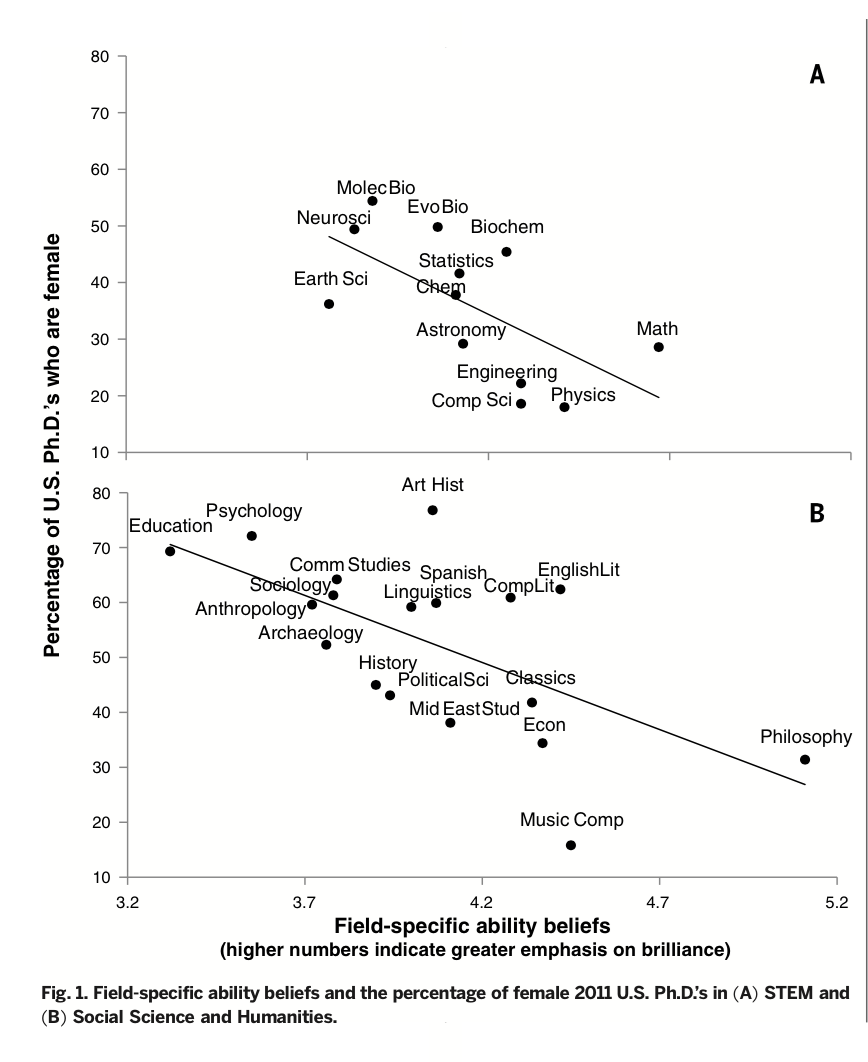Contributed by Nell Byler, Russell Dietrick
The Matilda Effect - The systematic under-recognition of women's contributions to science. Infamous examples from physics and astronomy include Lise Meitner's Nobel snub, Jocelyn Bell Burnell's Nobel snub, and "Pickering's Harem" of female computers. Research has shown that women receive grants less often, smaller grant allocations, fewer scientific awards, and less citations (Wenneras & Wold, 1997; Bornmann, Mutz, & Daniel, 2007; Lincoln, Pincus, Koster & Leboy, 2012).
As demonstrated in this disappointing study from 2012, gender bias in STEM fields exists at the hiring committee level, but it's likely that it plays a much broader role. In earlier career stages, peer evaluations are important for grant proposals, promotions, and networking. In this 2013 study, the authors found that abstracts from male authors were associated with greater "scientific quality" than those with female authors, and that the effect was stronger when the topic was stereotyped as "male-typed". While the differences in the evaluations are not large, small effects can multiply over a career.
Resources
- The Matilda Effect in Science Communication: An Experiment on Gender Bias in Publication Quality Perceptions and Collaboration Interest Knobloch-Westerwick et al., Science Communication (October 2013).
- Science faculty’s subtle gender biases favor male students Moss-Racusin et al., PNAS (October 2012).
- Gendered Language in Teaching Reviews
Discussion Questions
- Personal experiences: with your nearest neighbor or two, share something you have witnessed, experienced, or perpetrated in relation to gender bias. Have you found words, characteristics or behaviors that are heavily gendered?
- Gender bias is almost always unconscious, and often equally committed by both men and women. In the above-mentioned study, participants rarely gave blatantly sexist reasoning behind ratings for male and female applications, and instead came up with myriad seemingly-legitimate reasons for a low rating an application with a female name attached. This implies that the unconscious bias leads to a harsher set of criteria for women - is being aware of the bias enough to combat it? What else could help during application review processes?
- In the astronomical community: do you think this has an affect on citation counts? Do you use your first initials only on publications? Is a blind peer review really blind?
- Is publication rate an equal opportunity metric?
Related Topics
- The Matthew Effect - that well-known scientists are more likely to be credited for work than their lesser-known counterparts.
- Women in STEM, microaggressions, gender bias, stereotypes
